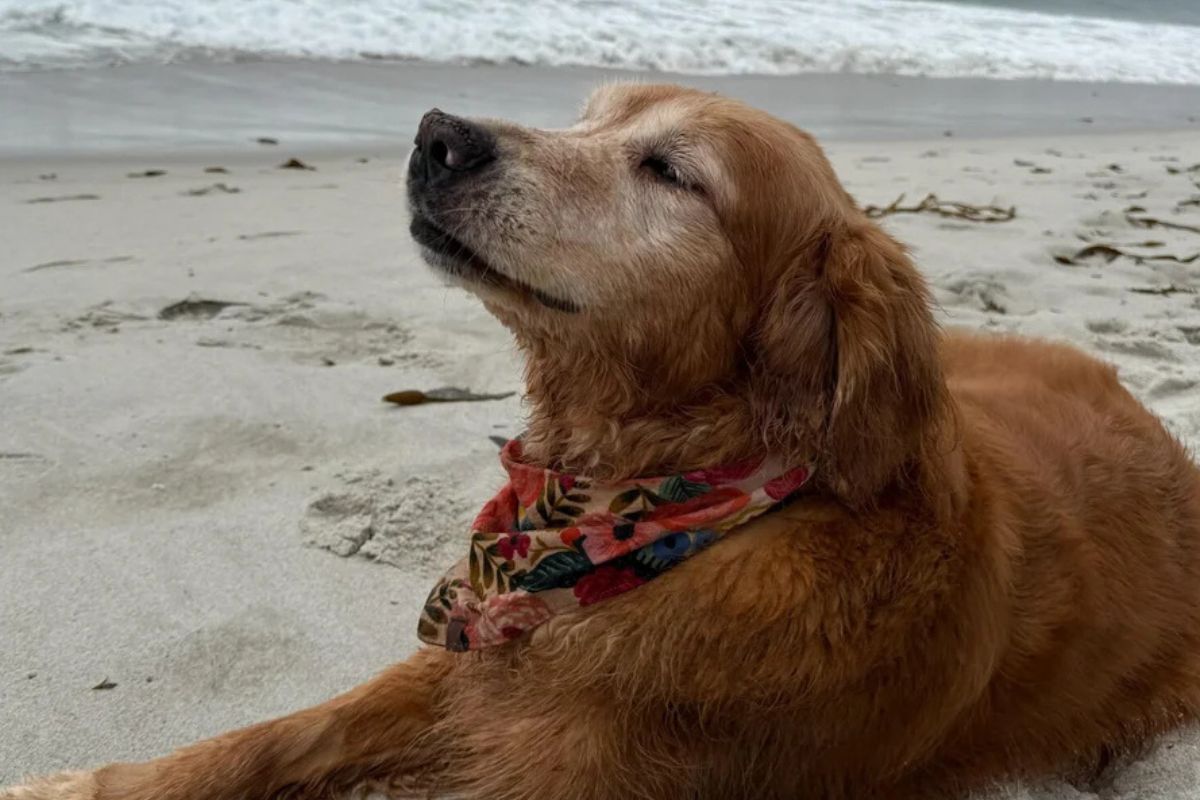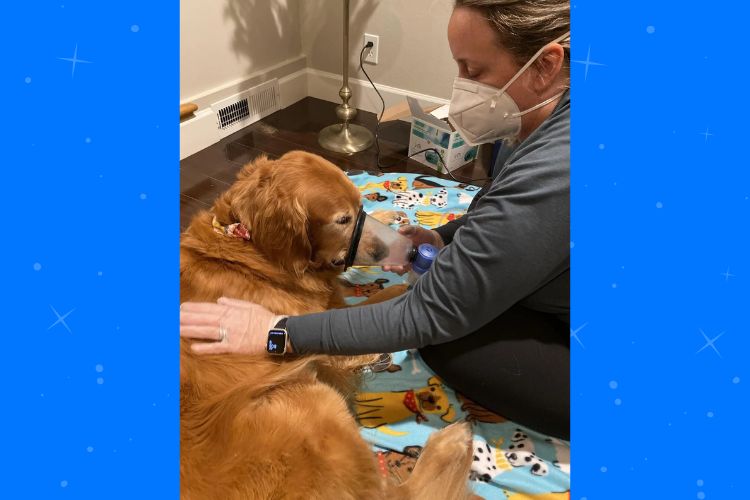
When Allison Roth takes her golden retriever Lola to UC Davis for cancer checkups, she admits there’s always a little anxiety in the air. But each visit ends the same, with relief, joy, and gratitude.
“I try to not let a day go by that I’m not in awe of what UC Davis and the science was able to do for her,” Allison said.
Just two years ago, Lola was given a terminal cancer diagnosis. At only 9 years old, she had an aggressive oral melanoma that had already spread to her lungs. Her family prepared to keep her comfortable and say their goodbyes.
“For those particular diseases, once it spreads to the lung, there is very little we can try. Even chemotherapy or radiation therapy at that point, the median survival is usually around 60 days,” explained Dr. Robert Rebhun, director of the Veterinary Center for Clinical Trials at UC Davis.
But today? Lola is cancer-free, and she’ll celebrate her 11th birthday in October.
Her miraculous turnaround came thanks to a groundbreaking UC Davis clinical trial titled Intravenous Doxorubicin and Inhaled IL-15 Immunotherapy for Treatment of Lung Metastases, sponsored by the National Cancer Institute at the NIH.

The trial allowed Lola to inhale cancer-fighting medicine from the comfort of her home. “That stimulates the immune system to hopefully recognize the cancer,” Dr. Rebhun said.
At first, things didn’t look promising. “The interesting thing with Lola is because it seemed like things were getting worse, so she actually went on to get radiation therapy. That all occurred before we saw the response,” Dr. Rebhun shared.
Then came the shock of a lifetime. “The big surprise was a month or so after finishing that when we went to check the X-rays and realized everything was gone.”
Each scan since then has brought more good news. “Really, I saw nothing. Which is amazing,” said Dr. Michael Kent, Lola’s veterinarian, after reviewing her latest results.
For Allison, this journey is personal. When Lola was just a puppy, she stayed by Allison’s side as she recovered from a life-threatening brain tumor and surgery at the Mayo Clinic. “She was home with us for a couple of months and I was having brain surgery. It’s two ends of the journey,” Allison said. “I think there’s this [feeling], I wanna take care of her the same way she took care of me.”
Now, Lola’s family is focused on cherishing every moment of their unexpected extra time together. “I’m greedy now, I think the oldest golden retriever has lived to be about 20 years old, can we break the record?” Allison laughed.

Her “brother,” Max Roth, added: “I would hope she’s not one in a million in the future. I would hope this would become the normal experience.”
That’s the dream driving researchers forward. “We get super excited, but we also remember there’s nine other dogs in this study that weren’t Lola. It motivates us to keep going,” Dr. Rebhun said.
The work doesn’t just benefit pets, it could one day help humans, too. “We have a lot more long-term successes now. That’s why I do this. Because we can beat cancer,” said Dr. Kent.
For now, Lola’s tail is wagging, her scans are clear, and her family is soaking in the gift of time.
“We are so grateful,” Allison said. “Whenever I reflect on her story, I’m always in a state of awe, the shock again of it.”
- Missouri Car Dealer Goes Viral for Doing the Right Thing—Even When He Didn’t Have To - November 4, 2025
- Teacher Uses 3D Printer to Build Student a New Hand—Out of Corn-Based Plastic - November 4, 2025
- Hero Pup Named After a Goddess Finds Lost Toddler in Freezing Woods - November 4, 2025



